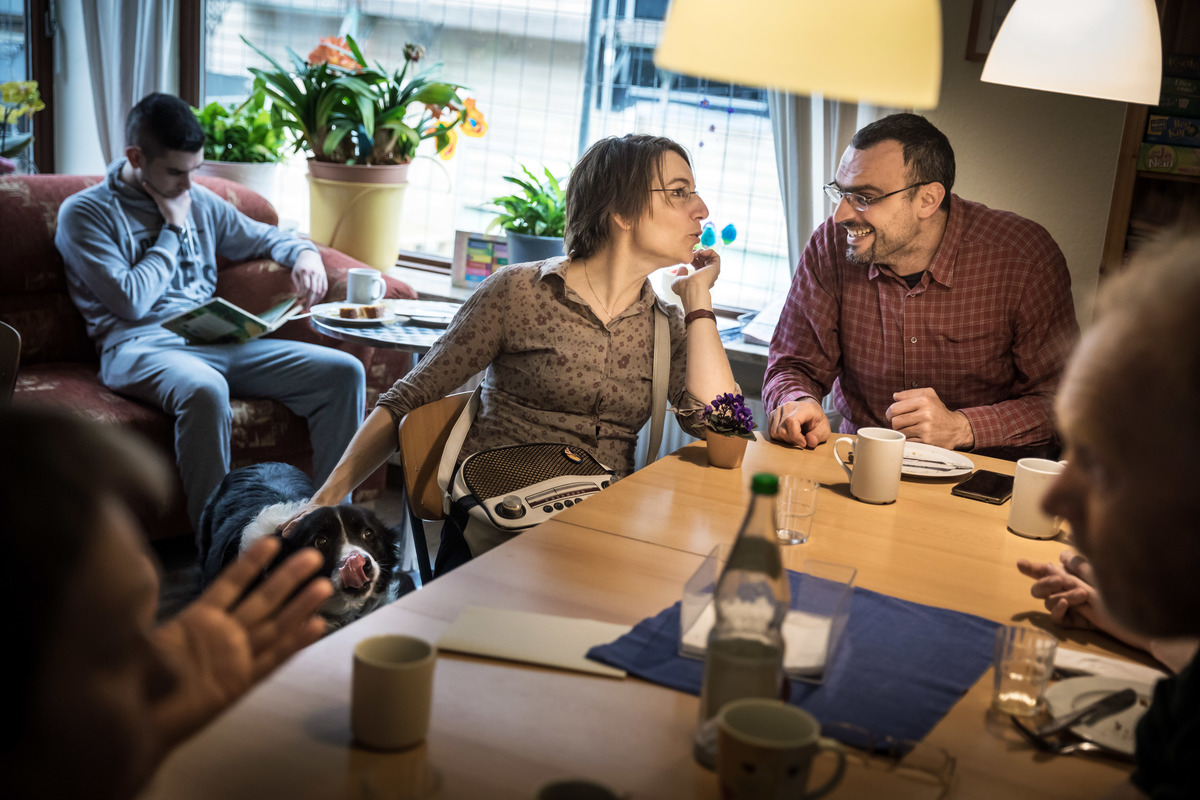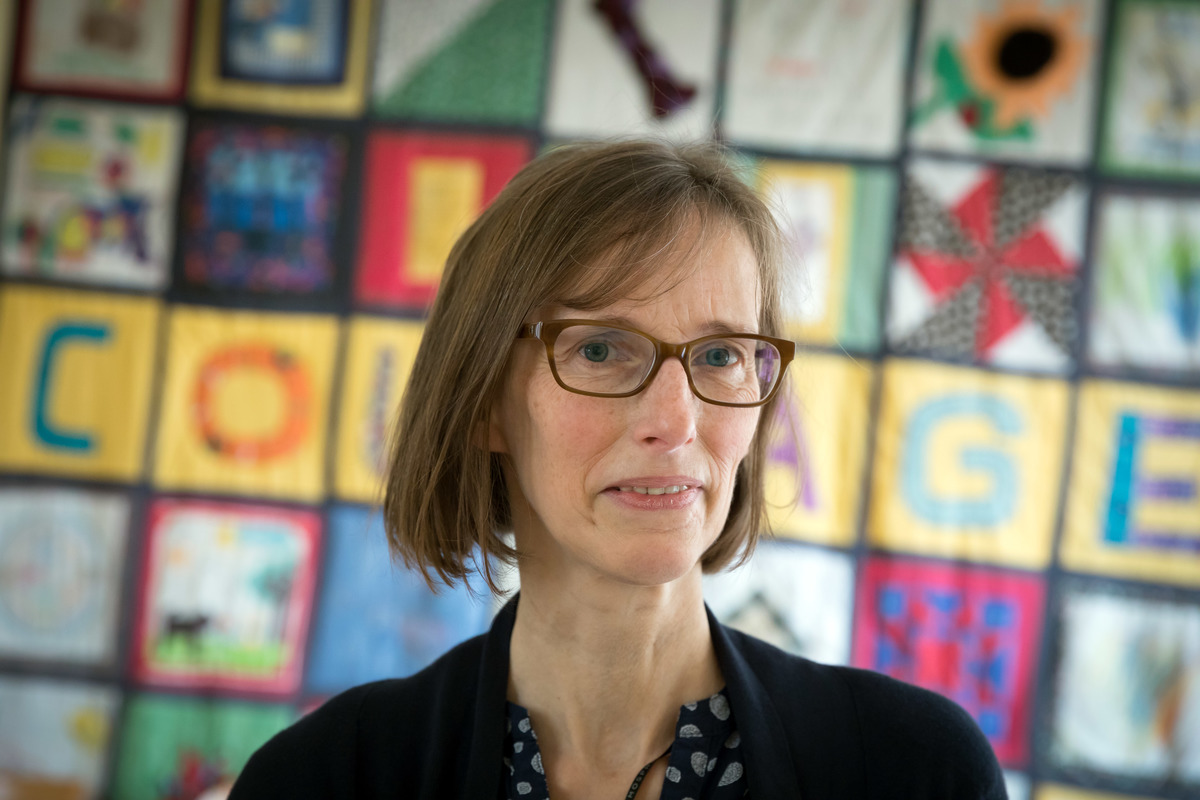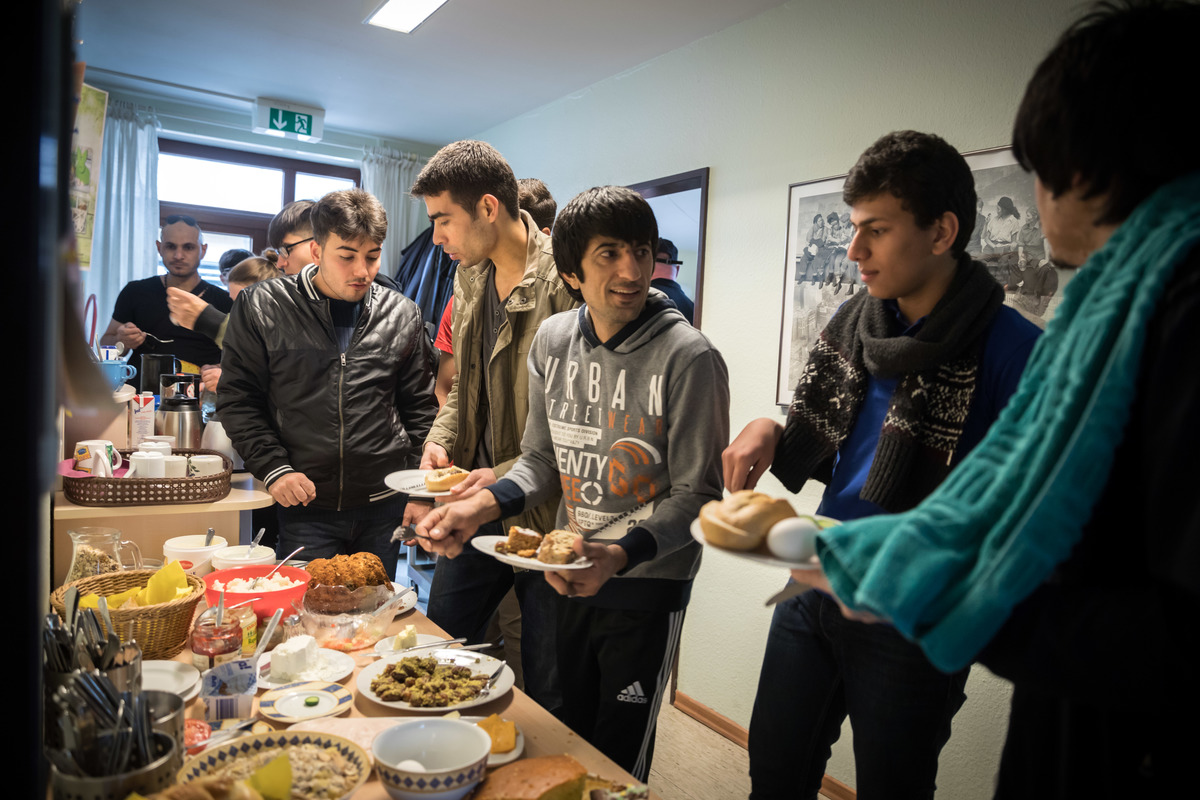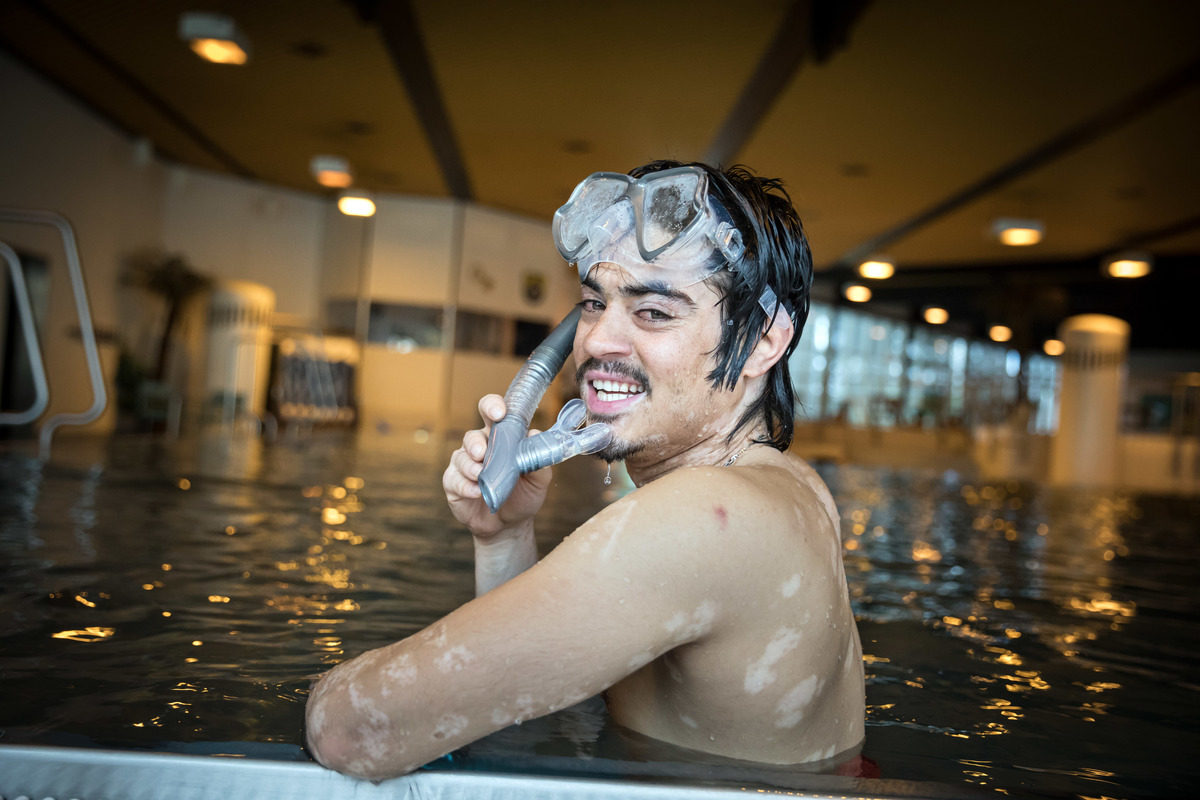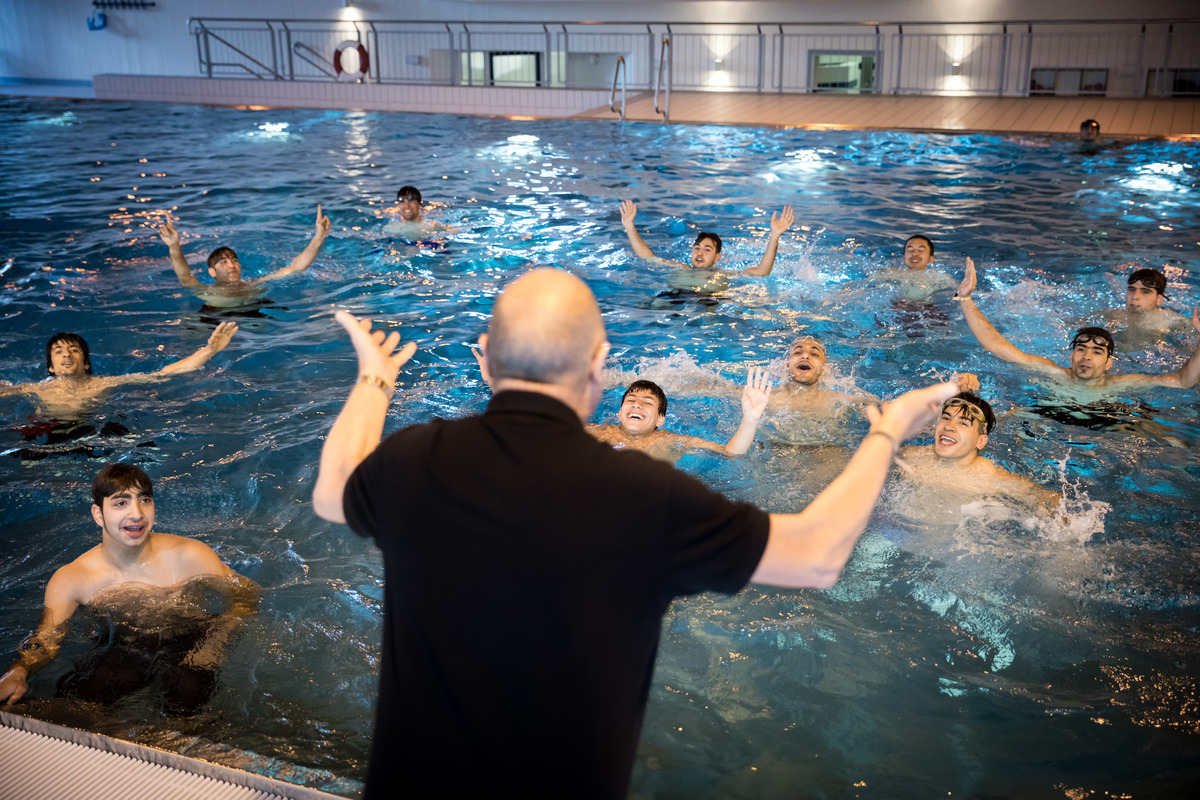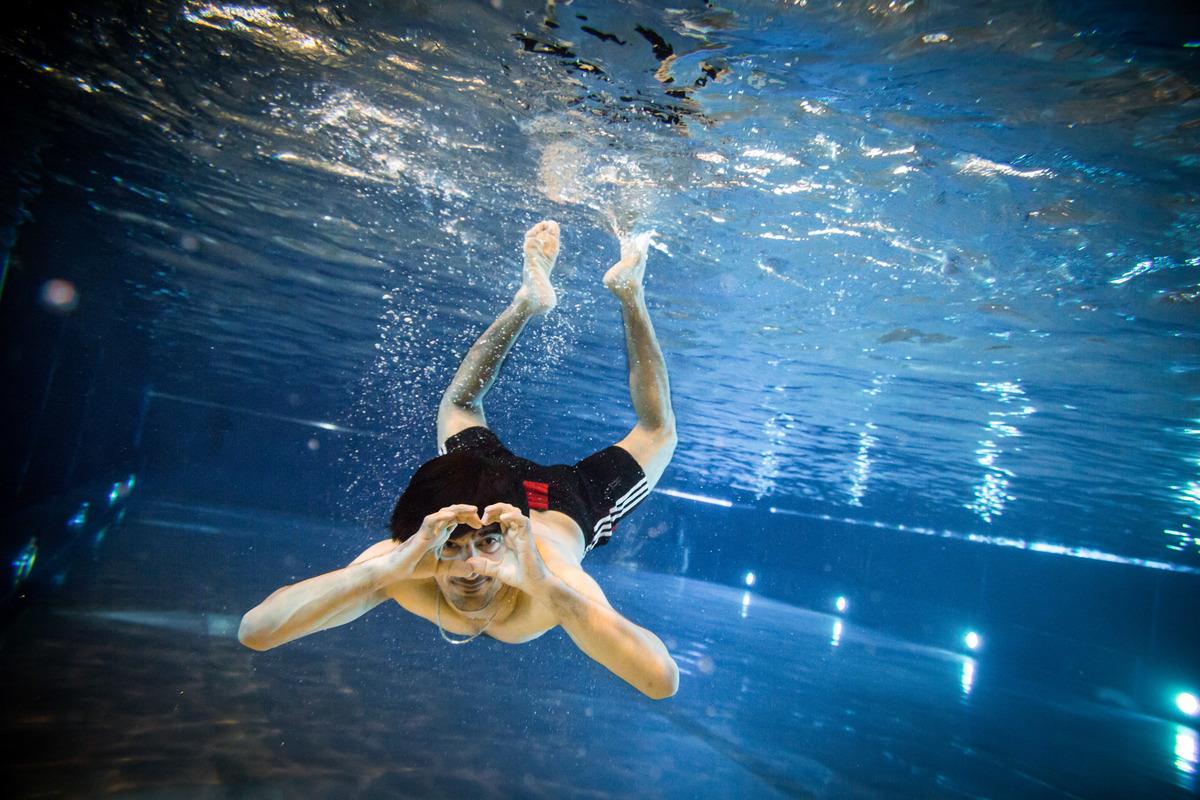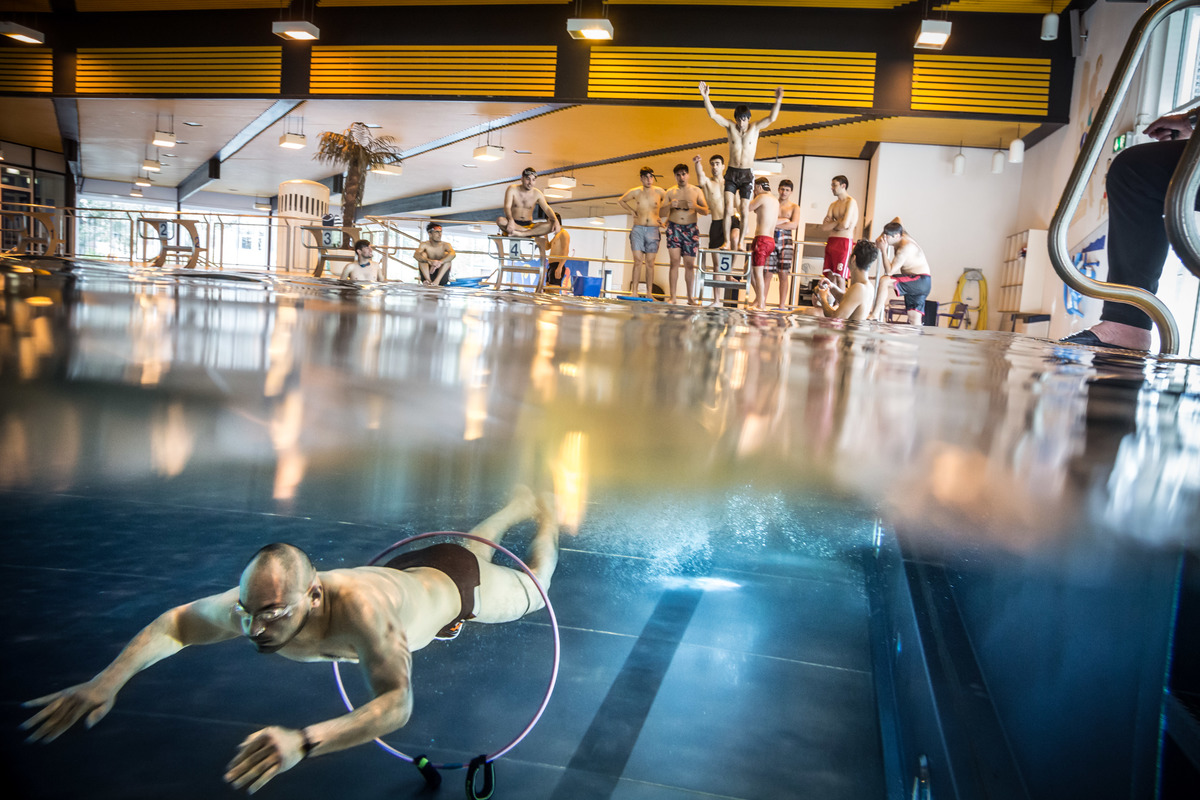Refugees give German town's residents new life perspective

Refugees give German town's residents new life perspective
The buzz of conversation rises above the clatter of plates in the packed community centre. Groups of Syrians, Iraqis and Afghans are deep in discussion with their German neighbours, seeking advice on jobs, studying or flat-hunting over a cup of coffee and a slice of cake.
The monthly get-together in Neu Wulmstorf, near Hamburg in northern Germany, is an opportunity for some of the town’s 300 refugees and asylum-seekers to mix with residents. For the community’s dedicated army of volunteers, the benefits are mutual.
"The refugees are an asset," said Cornelia Meyer, 44, co-founder of the refugee support network responsible for the meetings. “Since we founded this network and the refugees came, I’ve felt a lot better about living here.”
She continued: “They’ve brought the big wide world with them, they’ve brought in a lot of openness that just wasn’t here before. We’re a wide range of volunteers in the group, but everyone has taken the newcomers into their hearts. We all get so much back from this work.”
"Refugees are an asset."
Meyer, a social worker, launched the volunteer initiative Welcome to Neu Wulmstorf in summer 2014 after hearing the town’s refugee population was about to grow. With the help of the community centre, she recruited a core group of 40 volunteers willing to do whatever it took to make the newcomers feel at home.
Three years later, the network is as active as ever. Besides one-on-one support, the volunteers offer swimming lessons, a cycle repair workshop, language courses, game evenings, cinema events and day trips to local attractions.
“I was lucky to end up here,” said Syrian refugee Mohammad Al-Akily, 27, who arrived in Neu Wulmstorf in December 2015, having fled fighting near his home in Hama, western Syria. “The people here are very friendly. They help us if we have questions. I never expected it, I always thought I would have to struggle on my own. But it’s very beautiful that so many people here help us like this.”
Mohammad’s biggest thanks go to volunteers Heino Rahmstorf and Thomas Bartens, who have spent the past year teaching him to swim. Every Saturday morning, Mohammad and a group of other beginners, practise diving, front crawl and breast stroke in the local pool.
Before learning to swim, Mohammad first had to overcome the memory of a near-death experience in the Aegean Sea. Like many others, his overcrowded dinghy sank while crossing from Turkey to Greece in summer 2015. Although he could not swim, Mohammad survived for more than an hour in the water, fighting to stay afloat until he was rescued. The ordeal left him with a deep fear of water.
“At first it was terrible, I kept sinking,” said Mohammad, recalling his first attempts to swim in the pool. “I was very scared of the water. But that’s why I knew I should learn to swim. Now I’m much calmer. I’ve even swum in the sea.”
It is not just swimming that Mohammad has mastered in the past year. With the help of volunteer-run language classes, Mohammad is fast approaching the level of German he needs to go back to university, where he wants to study engineering.
He hopes to return to Syria, where his siblings and parents still live. “I hope that one day my home country improves and I can go home and help rebuild,” he said. “There’s always hope, that’s all we can have.” Meanwhile, he’s happy to be able to rely on the support of community volunteers in building his new life in Germany.
“There’s always hope, that’s all we can have.”
“It seems a lot of the newcomers feel at home here,” said volunteer network co-founder Hannelore Schade, 54. “People know they can always come here and that we’ll always try to help.”
Katharina Lumpp, representative of the UN refugee agency UNHCR in Germany, said the large number of volunteers in the country had helped meet the challenges posed by the refugees’ arrival.
“The vibrant civil society in Germany has significantly contributed to addressing the challenges that emerged with the arrival of so many people in need of protection”, she said.
Organisers Schade and Meyer said it was impossible to reach all of Neu Wulmstorf’s newcomers, but seeing the results of their hard reflected in the progress of individuals kept them motivated.
“The volunteers here feel really valued,” said Schade. “Everyone knows their work plays a key role in the integration process. And when volunteers are appreciated, they are more likely to stick at it.”

